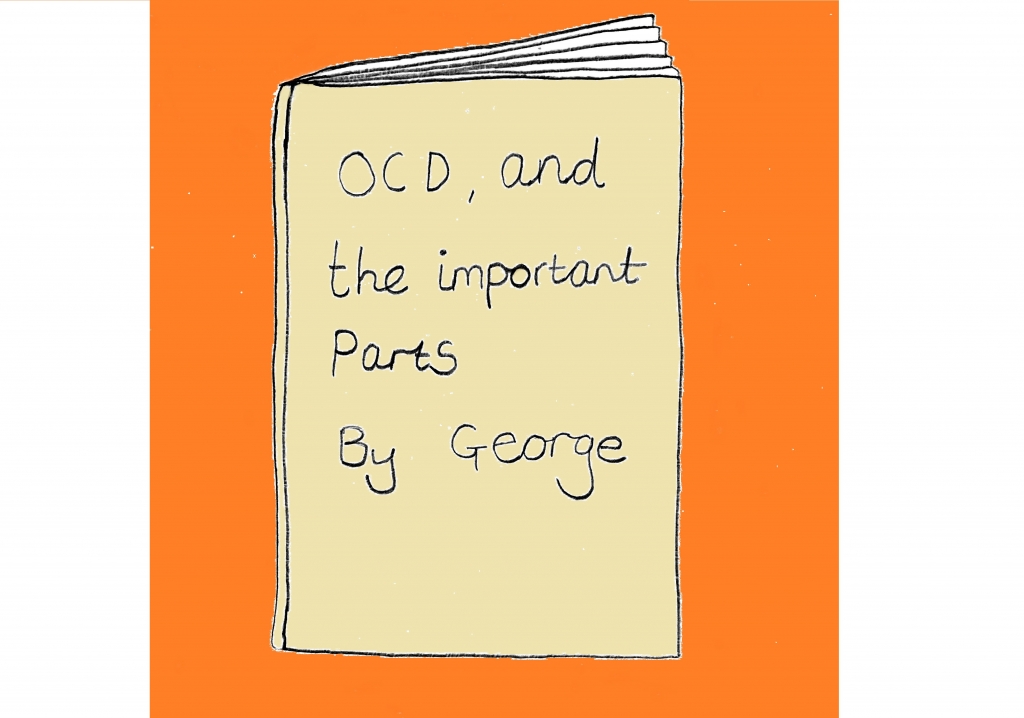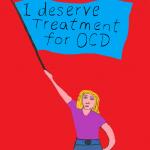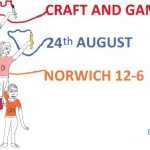OCD, and the Important Parts
May 10th 2019
Disclaimer: This article contains language that some readers may find offensive
Mental health, and the issues that we all face on a daily basis, is a constant, unavoidable part of our day-to-day lives. While events like Stress Awareness Month, Mental Health Awareness Week and World Suicide Prevention Day play a vital role in promoting discussion and bringing mental health to the forefront, it can be easy to forget that OCD, anxiety disorders and a variety of mental health problems are ever-present battles, not simply wheeled out like grandma’s priceless crockery for special occasions.
OCD has been there at pivotal moments in my life, but has similarly still been present at the boring, mundane bits. From family weddings to taking the bins out, from birthday parties to buying toilet paper, OCD can often affect aspects you’d not previously considered, such as relationships and the world of work.
Since my diagnosis, I’ve had two full-time jobs. In the first, my condition remained a secret. While this was no reflection on the working atmosphere of the organisation or the comradery between staff, something about “coming out”, for lack of a better phrase, as an OCD sufferer to my colleagues didn’t feel right. After six months of working there, and inevitably the odd compulsion observed by my colleagues, something was still bugging me. Even when one of the young people who volunteered with the company was brave enough to address their own struggles with mental illness openly and unashamedly, it still felt like the wrong time, an inconvenient moment, for me to do the same. I encourage everybody to, above all, trust your gut instinct; after a year of working there, I heard an individual in a position of power refer to people with mental health problems by inappropriate, derogatory language. Needless to say that I handed in my notice a fortnight later.
With my next job, I decided to take a different approach. I made my experience with OCD apparent at as early a stage as when I submitted my CV, making it clear that this is who I was – my qualifications, my experience, my personality and my obsessive compulsive – and that, as with any other candidate, they were welcome to take me or leave me at their own discretion. Sometimes, all you need is the balls to not care what other people think of you, even if they don’t think you’re capable of doing the job, as you know better, and you have the confidence to prove them wrong if they give you the chance. Not only have the organisation been deeply supportive of my day-to-day encounters with OCD, and have actively encouraged my activism and determination to have these issues discussed, but they also consider how organisational decisions (eg. our team moving offices to a different building) may affect myself and other OCD sufferers in the company.
For me, OCD has the biggest effect on my working life and my relationships. Much like my mantra towards work, having the confidence in your convictions to maintain a “sod it, take me or leave me as I am” attitude always works out for the best. My partner at the time of my diagnosis was caring, supportive and went above and beyond to do what had to be done to make me feel comfortable, despite not having signed up to this. My next partner, and the first with whom I needed to, again, “come out” about my OCD, didn’t know what to expect. I waited until a few dates in to tell her what OCD was, and how it affected me. After a few awkward questions and a long Google search when she got home, she felt confident that this revelation changed nothing.
Without a shadow of a doubt, my decision to tell my current partner about my OCD from Date #1 was the best decision I could have made. It was a conversation starter, she knew what challenges would face us in the long run, and it opened a forum for us to bare all, and for her to discuss the nitty gritty of her own problems before we’d even ordered our starter. Not only is she deeply supportive of how OCD affects me, she understands the often difficult dynamic of how OCD affects us as a couple. For example, I couldn’t have her come to my house for the first few months of our relationship, as the idea of another person entering my highly controlled, pedantic organised personal space was too much to deal with. A year later, she’s as involved in this community as I am, having worked with performing arts group The Secret Illness on their OCD projects.
In summary, while I obviously thoroughly encourage you to seek the proper therapy and engage with CBT, OCD is inevitably going to keep playing a key part in the lives of those living with the condition. However, it does not, and should not, be the defining part. Do your best to facilitate a “sod it” attitude, to navigate every important and unimportant facet of your life with the confidence to talk honestly about your struggles, as I can assure you that people – both professionally and personally – will respect you with the same confidence that you put across to the rest of the world.







